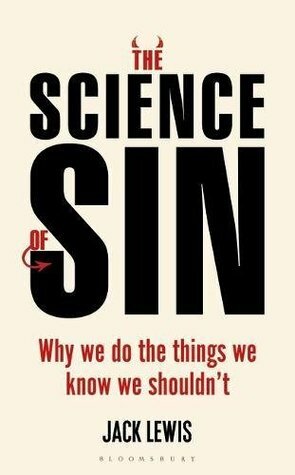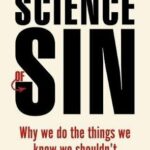
The Science of Sin: Why we do the things we know we shouldn't
by Jack Lewis
Genres: Non-fiction, SciencePages: 304
Rating:

Synopsis:It can often seem that we are utterly surrounded by temptation, from the ease of online shopping and the stream of targeted advertising encouraging us to greedily acquire yet more stuff, to the coffee, cake and fast-food shops that line our streets, beckoning us in to over-indulge on all the wrong things. It can feel like a constant battle to stay away from the temptations we know we shouldn't give in to. Where exactly do these urges come from? If we know we shouldn't do something, for the sake of our health, our pockets or our reputation, why is it often so very hard to do the right thing? Anyone who has ever wondered why they never seem to be able to stick to their diet, anyone to whom the world seems more vain and self-obsessed than ever, anyone who can't understand why love-cheats pursue their extra-marital affairs, anyone who struggles to resist the lure of the comfy sofa, or anyone who makes themselves bitter through endless comparison with other people - this book is for you.
The Science of Sin brings together the latest findings from neuroscience research to shed light on the universally fascinating subject of temptation - where it comes from, how to resist it and why we all tend to succumb from time to time. With each chapter inspired by one of the seven deadly sins, neurobiologist Jack Lewis illuminates the neural battles between temptation and restraint that take place within our brains, suggesting strategies to help us better manage our most troublesome impulses with the explicit goal of improving our health, our happiness and our productivity - helping us to say `no!' more often, especially when it really counts.
The problem is that it inevitably becomes very moralising. He does try to point out when certain neurological things might not be someone’s choice, but he seems to have more sympathy for paedophiles than for fat people, and is very certain that being fat is almost totally a choice people make (when in fact there are many contributing causes, including sheer poverty, where good food choices are not always available), and a moral one that impacts badly on society and on everyone around them. Fatness is also unequivocally bad for you, in Lewis’ view, where the real picture is more mixed (fat people, for instance, have lower 30-day mortality from bacterial pneumonia and have better survival rates and reduced immune depletion when living with HIV) and thinness is no guarantor of health of any kind.
In almost every chapter, he finds a way to reference narcissism, blame fat people, suggest fat people are narcissistic, and so on. And again, he treats these as moral issues, failures that people should rectify.
In some cases, he isn’t wrong, but he’s replacing religious moralising about it with a kind of secular moralising about it that sits badly with any effort to be objective. Combine that with his reliance on scans like fMRI to tell us about what’s going on in someone’s brain, and a lot of his conclusions are questionable: you can get apparently significant results from the brain of a dead salmon, with fMRI, an issue that he very briefly references before waving it away and saying that fMRI is the tool we have, so he’s going to use it.
For me, there was a kind of entertainment value in watching him build up his argument, but I was aware of the one-sided nature of his search for appropriate sources, and not appreciative of his moralising.



